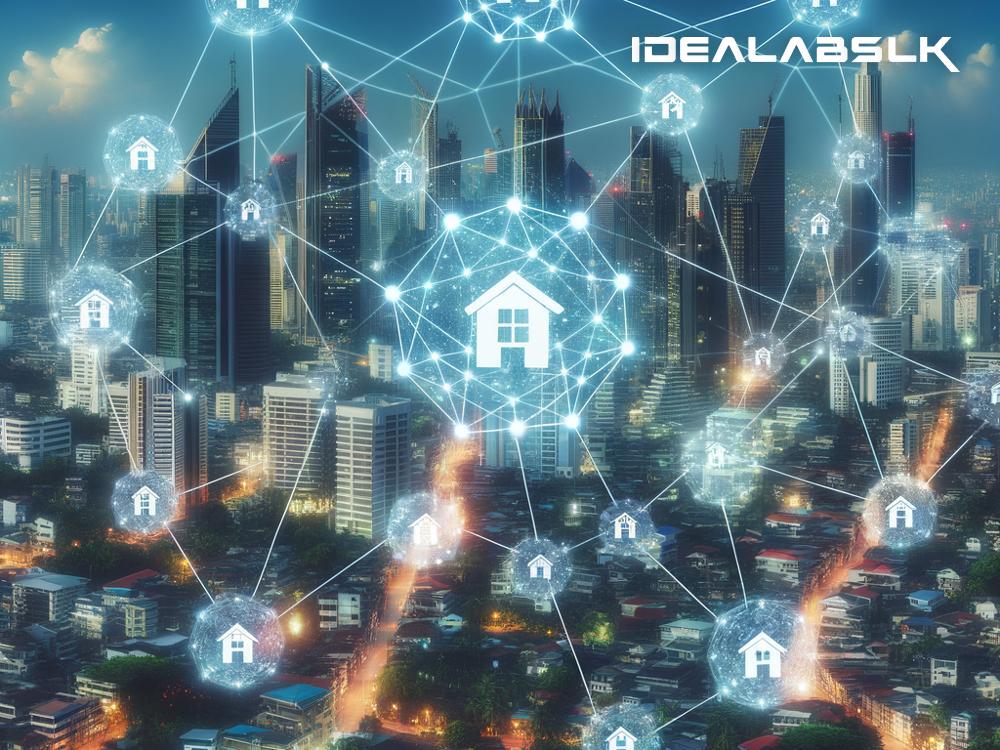Revolutionizing Real Estate Data Accessibility with Blockchain: A Simpler Understanding
The Dawn of a New Era in Real Estate
In a world that’s increasingly going digital, the buzz around blockchain technology is louder than ever before, and for good reason. When we peel back the layers of complex jargon and tech-speak, at its core, blockchain offers us something profoundly simple yet revolutionary: trust. This newfound trust is now paving the way for unprecedented advancements in various sectors, and real estate, one of the oldest and most crucial marketplaces in our society, is no exception. Let’s journey together through the promising landscape of blockchain for real estate data accessibility, breaking down the concept into easily digestible bits.
Understanding Blockchain in Plain English
Before diving into the heart of the topic, let’s demystify this buzzword. Imagine a ledger or a record book that’s not controlled by one person or organization but is spread out and duplicated across a network of computers. This ledger updates in real-time, and once a record is added (in blockchain lingo, a block), it cannot be altered or deleted. This creates a chain of blocks — hence, blockchain. The beauty of this technology is its ability to foster trust and transparency in transactions without the need for a central authority.
Why Real Estate Needs a Makeover
Traditionally, buying or selling property involves a lot of paperwork, middlemen, and, frankly, headaches. From proving ownership to verifying the accuracy of property details, the process is riddled with inefficiencies that can lead to fraud, errors, and delays. Real estate transactions also suffer from a lack of transparency, making it difficult for buyers, sellers, and investors to make informed decisions.
Entering Blockchain: A Game Changer for Real Estate Data
Imagine if there was a universal, accessible-by-all ledger for real estate. This ledger would hold accurate, tamper-proof records of every property, including its history, ownership details, and even real-time data on taxes or utility bills. Welcome to the potential of blockchain in real estate.
Streamlining Transactions
Blockchain can significantly streamline the convoluted process of buying and selling property. Smart contracts, which are self-executing contracts with the terms directly written into code, can automate various steps of the transaction process. This includes verifying financial eligibility, transferring property titles, and processing payments without the need for intermediaries. This not only speeds up the process but also reduces the risk of fraud and errors.
Enhancing Transparency and Accessibility
With real estate data stored on a blockchain, each transaction’s history becomes transparent and easily accessible. This level of openness allows all parties to conduct due diligence with ease, fostering trust among buyers, sellers, and investors. Access to such data opens up the market, making it easier for smaller investors to participate in real estate investment opportunities that were previously out of reach.
Improving Data Security and Integrity
One of the most significant advantages of using blockchain in real estate is the security and integrity of data. Once information is recorded on a blockchain, it's nearly impossible to alter or hack. This ensures that property records, ownership details, and transaction histories remain intact and trustworthy. It offers peace of mind in an industry where data manipulation and fraud can be costly.
The Road Ahead
While the adoption of blockchain in real estate is still in its early stages, the potential benefits are clear and compelling. However, widespread adoption will require overcoming challenges, such as regulatory hurdles and the need for standardization across the industry. Moreover, there's a substantial need for education and awareness about blockchain technology among real estate professionals and the general public.
Final Thoughts
Blockchain technology promises to revolutionize real estate data accessibility, making transactions more transparent, efficient, and secure. By simplifying complex processes and fostering trust in transactions, blockchain could very well be the foundational block of a new real estate era. As we march into this promising future, it’s essential for industry stakeholders and tech innovators to work hand-in-hand, turning the potential of blockchain into a concrete reality for the benefit of all.
The simplicity, transparency, and efficiency that blockchain brings to real estate could significantly improve how we buy, sell, and invest in properties. Perhaps, in the not-too-distant future, the complexities and trust issues that once plagued the real estate industry will be nothing more than a distant memory, thanks to the transformative power of blockchain technology.

